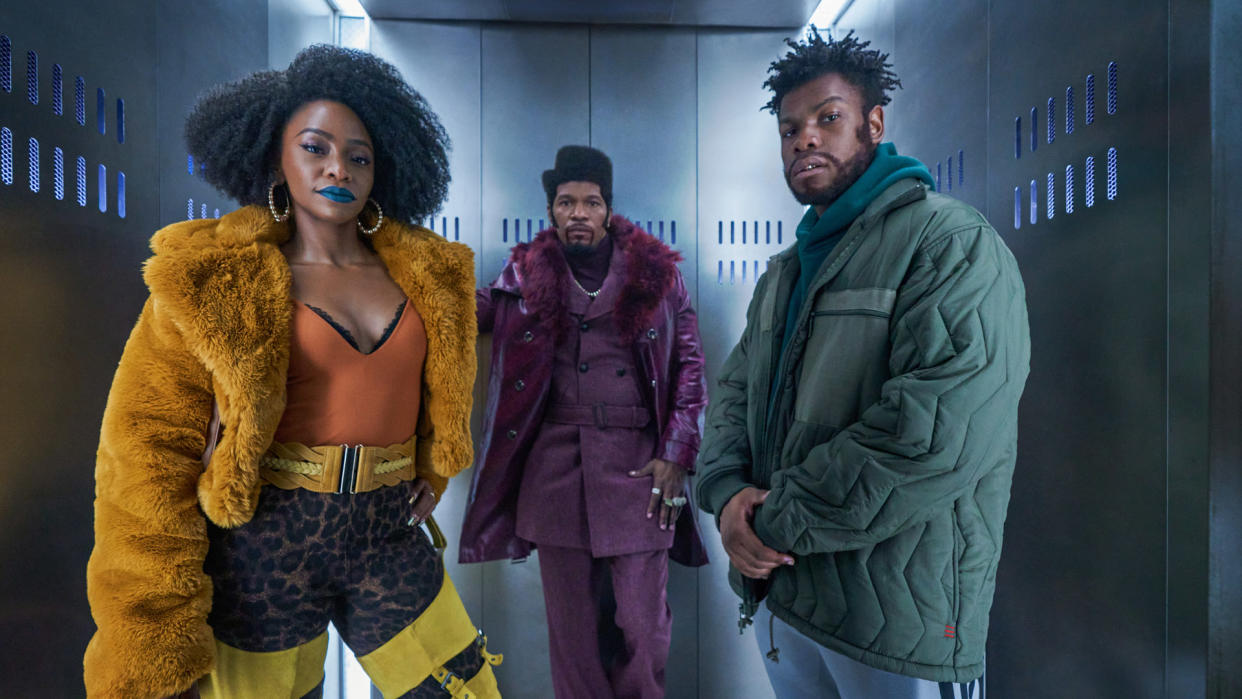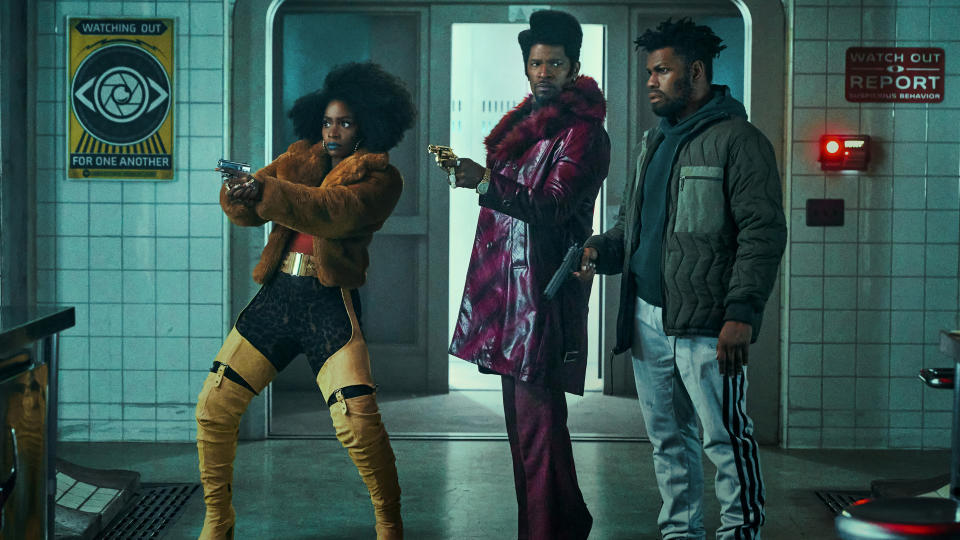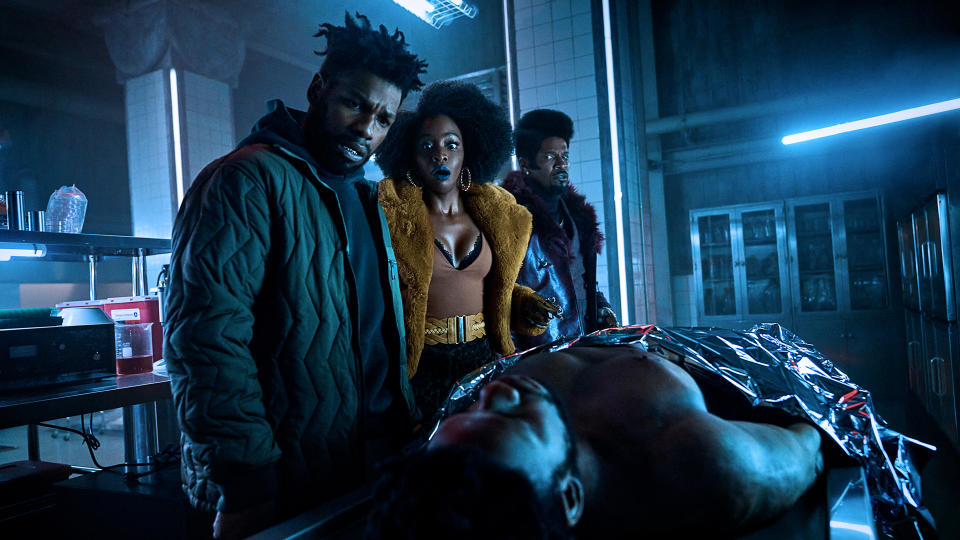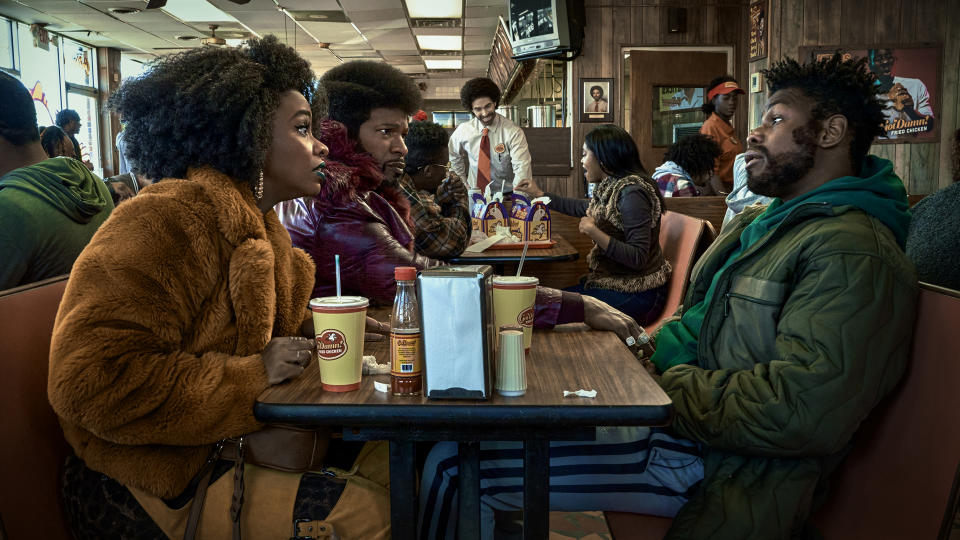With They Cloned Tyrone, Netflix breaks every genre rule in the best way possible

Editor's note: this interview took place before the actors' strike, which began on July 14.
John Boyega is all about throwing himself into unusual movie and TV show projects.
The Star Wars alum has spent the past few years immersing himself in creatively fulfilling roles since 2019's The Rise of Skywalker ended his stint in that galaxy far, far away. And, while Boyega hasn't completely ruled out a return to Lucasfilm's legendary franchise, he's been eager to tackle roles that not only teach him something new about himself but also help expand his acting knowledge and repertoire.
So, when the opportunity came to star alongside Jamie Foxx (Spider-Man: No Way Home) and Teyonah Parris (WandaVision) in They Cloned Tyrone, a subversive sci-fi mystery caper, Boyega knew he needed to grab the chance with both hands.
The new Netflix movie, which launches on Friday, July 21, is the multi-genre brainchild of Juel Taylor and Tony Rettenmaier (Space Jam: A New Legacy, Creed II). In it, an unlikely trio – street hustler Fontaine (Boyega), washed-up pimp Slick Charles (Foxx), and escort/wannabee-detective Yo-Yo (Parris) – unearth a mass government conspiracy in the Glen, a fictional US town acting as the backdrop to some seriously strange events.
It may sound like the hit Netflix show Stranger Things, but They Cloned Tyrone is anything but. As Boyega tells me: "The whole point of this movie is to feed into stereotypes but then completely flip things on their head... it's a script that offers a perfect balance between so many things."
In an exclusive chat with TechRadar, Boyega reveals more about why They Cloned Tyrone appealed to his artistic nature, building chemistry with Foxx and Parris, and why it forgoes conventional genre tropes.
NB: this interview has been edited for clarity and length.

TechRadar (TR): One of They Cloned Tryone's greatest strengths is how it subverts everything you think you know about Blaxploitation movies and genre archetypes. Was it that desire to forgo convention that drew you to the project? Or was it to simply work with Juel and Tony?
John Boyega (JB): It was both, really. The whole point of this movie is to feed into stereotypes and then completely flip things on their head. It's got characters who hark back to '70s Blaxploitation movies, but it's set in a weird, modern world. It's also a mesh of genres, which Juel wanted to shoot with a grainy aesthetic. Even with the comedic tones and then the serious social commentary, I felt like it's a script that offers a perfect balance between so many things.
TR: You share great chemistry with Jamie and Teyonah, and I'm sure audiences will get a kick out of the juxtaposition between your characters. How easy was it to build that rapport off-screen and then translate that dynamic into a more dramatic, argumentative space?
JB: Pretty easy. We're all quite open artists, and we get to have extroverted moments where we laugh and have different conversations. It was truly easy to make those relationships work. We didn't have a chemistry read – we just collectively said 'These are the characters, and this is just going to work'. Having open, talented artists like Jamie and Teyonah made that as effortless as possible.

TR: There are plenty of rich themes, real-world ethical issues, and difficult social commentaries at the film's heart. As an actor, how do you separate your own thoughts and feelings from those topics to imbue Fontaine with an alternate worldview?
JB: I just think that's what actors do. Your director guides you to the main points of who your character is, so you forget about the perspective of 'self'. You view the world from their perspective, regardless of whether you play a hero or a villain. You're not necessarily going to agree with every decision your character makes, but it's your responsibility to understand where they're coming from.
It was truly easy to make those relationships work
TR: How did the film's genre-bending aspect affect your exploration of Fontaine's character? I imagine the constant shifts in tone and subject matter presented a challenge to traversing his character arc.
JB: I think Fontaine has a steady character arc throughout the whole process, which is about discovering what's going on in the Glen. He's the eyes of the audience: the one who's going through the serious issues, so there was a through line for me to manage that. I think Yo-Yo and Slick Charles represent those tonal shifts at a greater level. Their characters are used more to ease the pain or switch those high-intensity moments from dramatic or scary to funny. But they were often reined in by Juel, who was the tone police. He'd say, 'How much do we do here?' or 'Where do we need to pull back?' on their dynamic, and it was through that guidance that we got the right balance.

TR: You've spoken about your mixed experiences with franchises in the past, most notably with Star Wars. Are you hesitant to tackle those roles in the future? Or is that something you'd like to explore again alongside indie film roles?
JB: That was a few years ago, so that was subject to that particular project. I'm open to all characters and scripts that are enjoyable and have a great cast and director. So yeah, I'm open to anything.
TR: Can you give us an update on where Attack the Block 2 is in the development process? Has it been impacted by the writers' strike?
JB: It's still in the lab getting cooked up. But we stand in solidarity with everyone at the moment and will see how the negotiations go.
For more Netflix movie-based coverage, read up on all of the new Netflix movies to hit the platform, as well as the best Netflix movies around. Be sure to check back with TechRadar on July 21 for a spoiler-filled chat with Boyega about They Cloned Tyrone's surprising ending.
